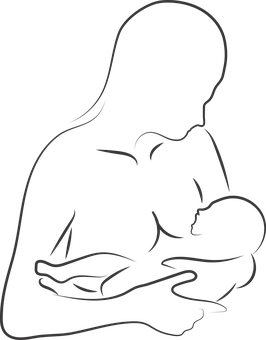 Source: pexels.com
Source: pexels.com
For soon-to-be mothers, carrying a baby for nine months is stressful enough as it is. However, the moment after giving birth poses even higher risks not only for the baby but also for the mother’s health.
Women’s hormones go into a highly unstable state after birthing. It causes a couple of psychological issues such as mood swings, feeling of isolation, helplessness, and lack of self-esteem, among others. These, along with other stressors right after giving birth, make up for what is now commonly known as postpartum depression (PPD). To understand more about this condition, visit BetterHelp.com for helpful information.
What Is Postpartum Depression?
Postpartum depression affects one in seven mothers. Susan Hatters Friedman, MD, wrote, “As a society, we expect it to be the happiest time of a woman’s life. A lot of women don’t report if they’re having symptoms.” It should not be confused with the baby blues syndrome, as postpartum depression is more severe.
Postpartum depression is severe in that it can last longer and can include suicidal thoughts or being unable to take care of their newborn. Usually, it happens right after giving birth due to sudden hormonal changes that the woman experiences. To add to this, the stress of going through drastic physical changes, lack of sleep, and the process of healing after childbirth contribute to the development of postpartum depression.
At the onset, it may seem like postpartum depression only affects mothers. But it affects the entire family in a myriad of ways.
 Source: pexels.com
Source: pexels.com
First, it will cause a disconnect between the woman and her partner since the woman may feel like she is not getting the support she needs. The emotional gap will soon take over their lives negatively.
Second, the newborn/child will not get the attachment and bonding s/he needs to grow healthily. Ellen Hendriksen, PhD, wrote that “this goes way beyond taking awhile to bond, which is normal.” Studies even show that it has long-term effects on children. This behavior from the mother may contribute to the child growing up with cognitive disorders, lack of social skills, and issues with emotional attachment. It may stem from the mother forming an irrational dislike for her child or neglecting tasks like feeding and taking good care of the baby.
Lastly, it also influences the mother’s relationship with her other social circles. PPD isolates the mother and disallows her to rebuild meaningful connections even with long-term friends.
How To Treat Postpartum Depression?
Despite the severity of PPD, it can be effectively treated once diagnosed. The most vital way is to create a secure bond with your baby, which can be as simple as holding your baby as much as you can. Respond gently and kindly whenever the baby does something, as it will spark the connection between you and the child.
Remembering that you are not alone in motherhood is also a great help for mothers. Rosalind S. Dorlen, PsyD, suggests that you “talk openly about your feelings with your spouse, family, friends, and healthcare professionals.” Mothers need to make time for their friends by inviting them over for coffee or letting them help take care of the baby. Doing so will not only help ward off the feeling of isolation in the mother but can also aid in relieving her stress.
 Source: pexels.com
Source: pexels.com
Aside from support from friends, it is the best time to rely on the mother’s partner instead of braving the stress alone. They are sure to help through this tough time, and the mother should maintain trust and confidence, however hard it is.
Of course, do not forget to take care of yourself too. It is a necessity that you need to prioritize. Several triggers for postpartum depression are also related to physical changes happening to the woman’s body, such as hair loss and weight gain. To help with this, mothers can try slowly easing back to mild exercise or taking vitamins.
Motherhood is stressful, but with the proper support system, it certainly doesn’t have to be depressing. Congratulations, new moms!





 Source: pixabay.com
Source: pixabay.com Source: pixabay.com
Source: pixabay.com Source: pixabay.com
Source: pixabay.com
 Source: pexels.com
Source: pexels.com Source: pexels.com
Source: pexels.com Source: pixabay.com
Source: pixabay.com Source: pexels.com
Source: pexels.com Source: pexels.com
Source: pexels.com Source: pexels.com
Source: pexels.com Source: pixabay.com
Source: pixabay.com Source: pixabay.com
Source: pixabay.com Source: pixabay.com
Source: pixabay.com